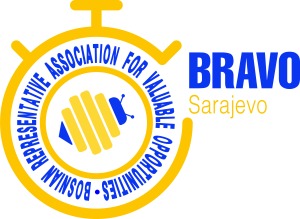SLAM Seminar - Sarajevo 21.01 - 24.01.
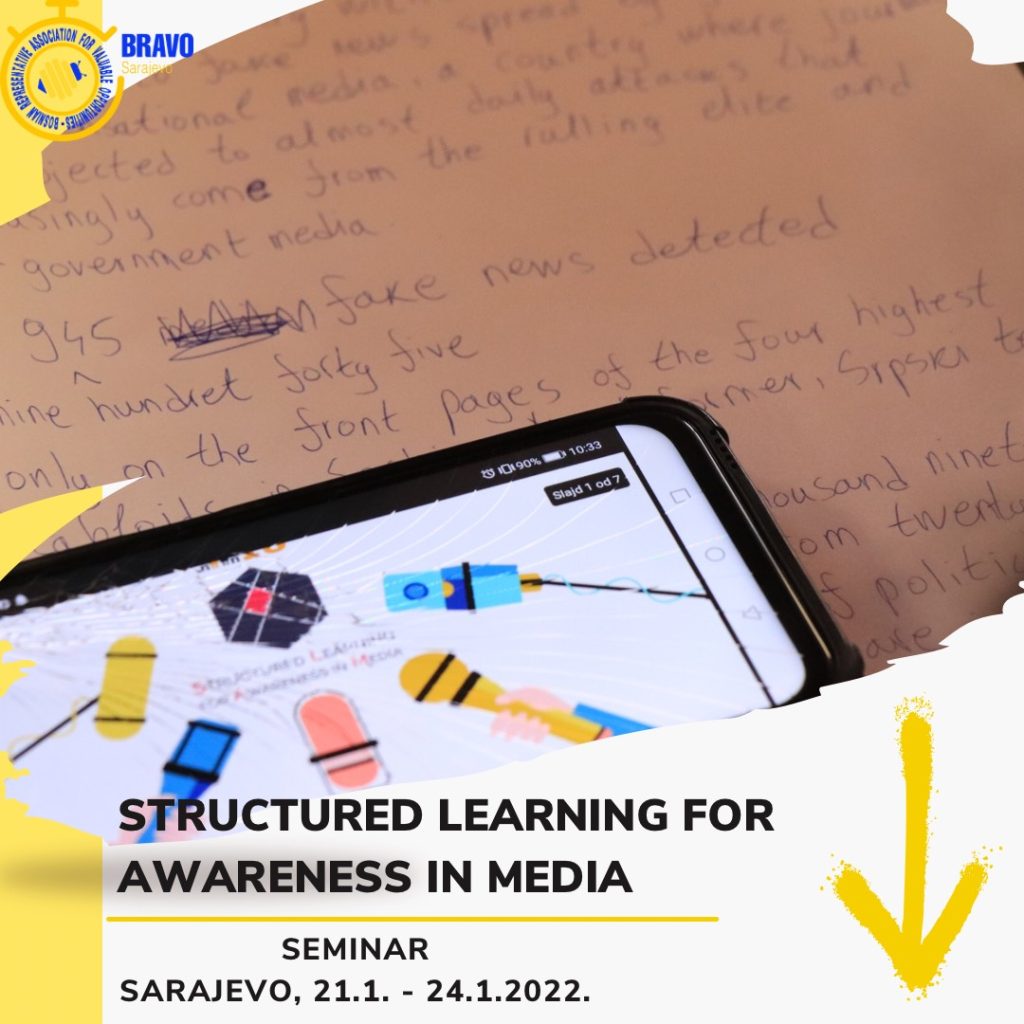
An investment in knowledge pays the best interest. – Benjamin Franklin
In accordance with the International Day of Education, this article is going to celebrate that beautiful occupation and process. We bring you another positive story about learning. The way in which BRAVO teaches is already familiar to you all, but let’s repeat the material.
BRAVO (Bosnian Representative Association for Valuable opportunities) is a professional non-governmental organization based and focused on knowledge, entrepreneurship, civil society development, non-formal education and innovative learning and development techniques for young people and adults.
Project through which we emphasized all of the mentioned, but also the project which has special place in our heart is SLAM. What makes it special?
Structured Learning for Awareness in Media is the project which BRAVO successfully coordinates in the last two years and we are very proud on our work, as well as the work of our partners. Structured Learning for Awareness in Media” (SLAM) aims at enhancing young people’s awareness and critical thinking on the role of Mass Media as a challenge and precondition for more inclusive societies towards migrants and refugees. The SLAM project involves seven partner organizations from both EU and non-EU countries. The Consortium team includes organizations from Albania, Bosnia and Herzegovina, Bulgaria, Italy, Montenegro, Serbia and Turkey.
inar dapibus leo.
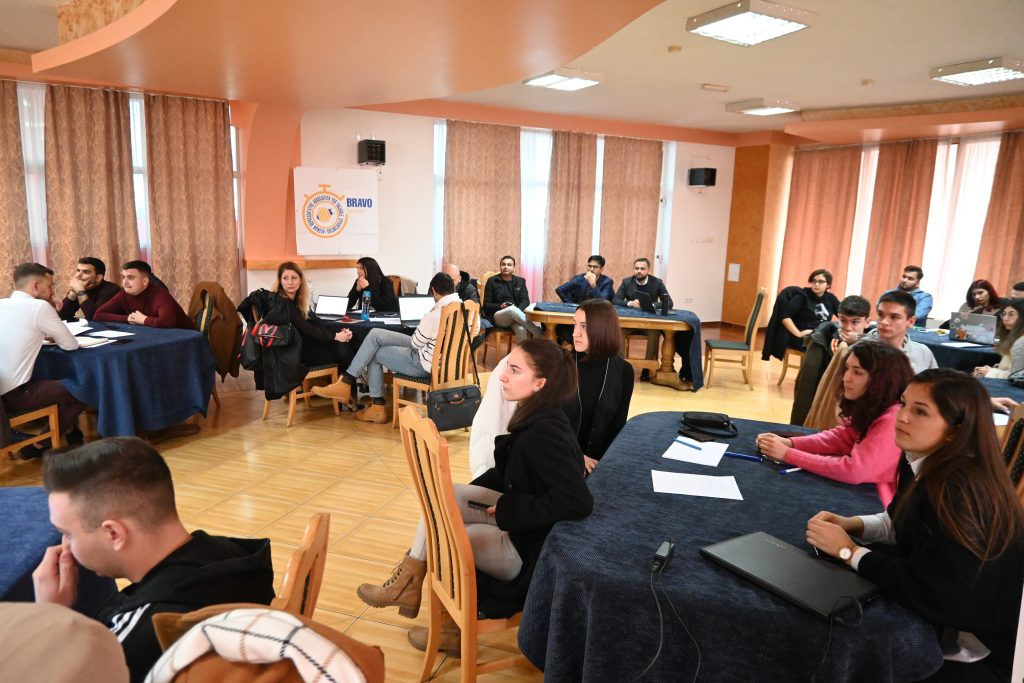
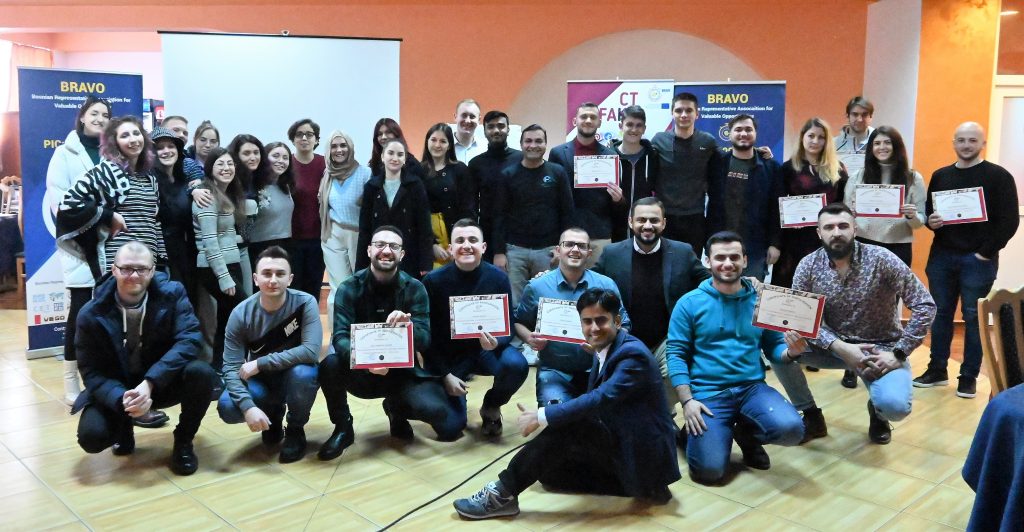
From January 21 to January 24, SLAM seminar was held in Sarajevo and youth from 7 countries took participation in it, highly contributed to it and gained a wide spectrum of knowledge. This is what we have dealt with during the Seminar:
- Positive and negative sides of media in the participants’ countries;
- What does the media lie about the most, where participants listed economy, COVID-19, and VIPs;
- SWOT analysis of the social media;
- Social media campaign- How to implement different techniques and methods in SLAM social media campaign. Some of the ideas given were: Employing celebrities/influencers that would help with the reach; Subsections of the main SLAM page in different languages where content related to certain country could be published; Fliers; Self- fact Check Guide; Helping young people in becoming more media literate, how to spot fake news and how to report it.
- Campaign against spreading false news and raising awareness of the importance of timely and correct media reporting;
- Presentations of the national teams on the topic of the presence and representation of migrants in the national media;
- Evaluation of the seminar
- Certification ceremony.
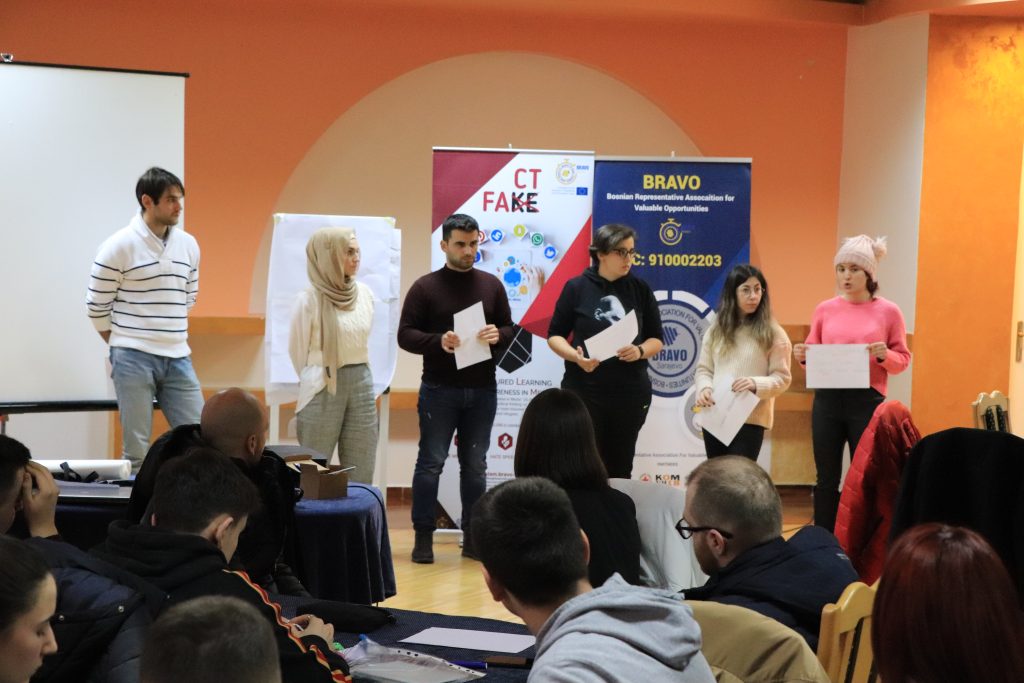
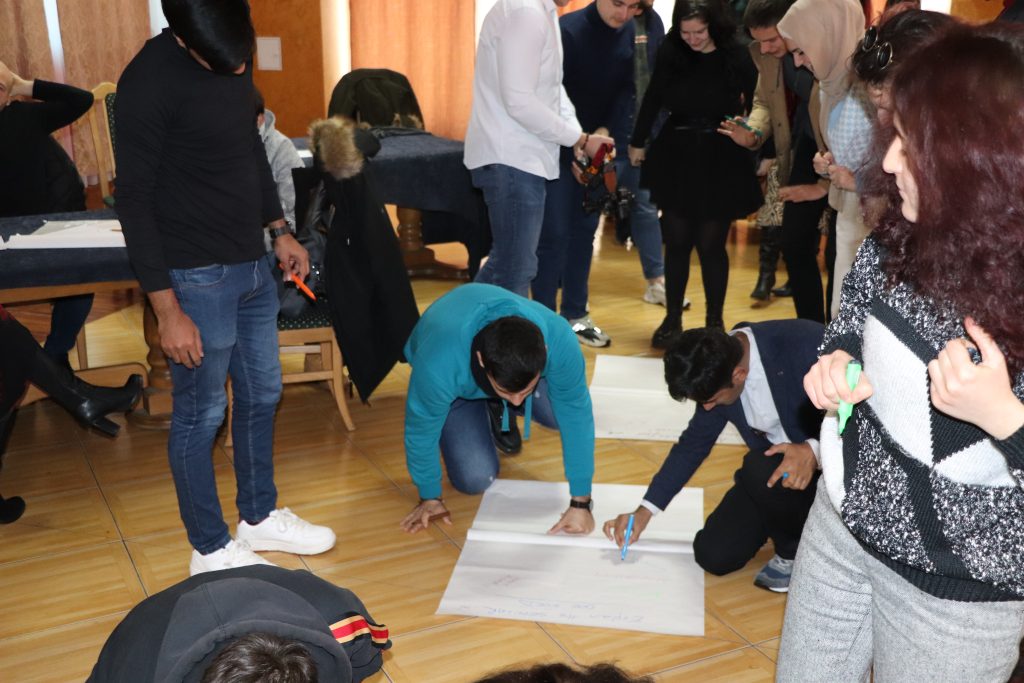
In three days of the seminar, we did incredible work and we are proud of every single participant. If this doesn’t show you the atmosphere, check our social networks.
#BRAVO #BRAVOBIH #MAKETHEWORLDWONDER #BRAVOSLAM #ERASMUSPLUS
More about BRAVO check on the video below:
Aim and objectives of the project:
Structured Learning for Awareness in Media” (SLAM) aims at enhancing young people’s awareness and critical thinking on the role of Mass Media as a challenge and precondition for more inclusive societies towards migrants and refugees.
The Council of Europe’s Report “Media Regulatory Authorities and Hate Speech” (2018) underlines the historical significance of media in enticing and feeding the climate of hatred and violence characterizing West Balkan’s turbulent past. The Balkans are still a primary example of media consciously or even deliberately using hate speech for sensationalistic purposes, thereby supporting it and causing its recurrence and reinforcement at the societal level.
Bosnia and Herzegovina has recently taken a foremost importance as a transit node for migrants and refugees seeking entrance in EU territory, a trend which the UNHCR (2018) recognized as exponentially increasing in 2018, from the 198 arrivals in December 2017 to the 666 registered in the peak month of March 2018. The strain posed on the local relief system by this surge has contributed to a growing sense of local unrest and discontent, which national mass media have so far been able to answer by providing the public with awareness and understanding circa the phenomenon, in many instances providing an amplifier to internal currents of distrust, hate and stereotyping.
From the European perspective, significant indications might be extracted from analysing media coverage about the reception and integration of migrants/refugees.
The CoE in its 2017 Report “Media coverage of the refugee crisis: a cross-European perspective” underlines the role played by media in fuelling societal hate speech as consisting in an abetting/legitimacy factor to explicit hate speech brought about by shallow and sensationalistic coverage.
More about SLAM check on the video below:
